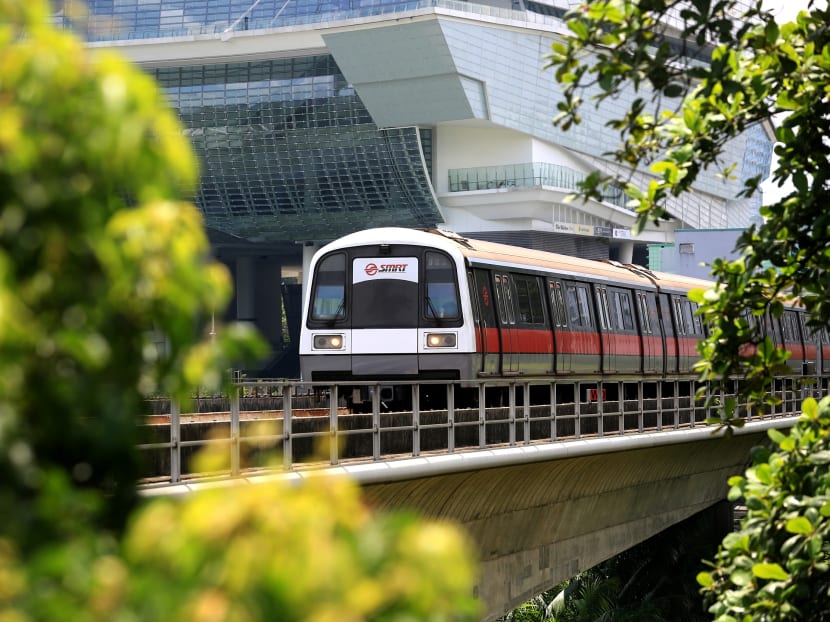As train reliability improves, focus shifts to reviewing financing model and mounting costs
SINGAPORE — Now that train reliability has improved, Transport Minister Khaw Boon Wan says he has more breathing space and time to focus on a new issue — how to finance the heavy cost of maintaining Singapore’s public transport system.

The increased costs to improve transport reliability will ultimately be shared by taxpayers through government subsidies or commuters through some fare adjustments, Transport Minister Khaw Boon Wan said.
SINGAPORE — Now that train reliability has improved, Transport Minister Khaw Boon Wan says he has more breathing space and time to focus on a new issue — how to finance the heavy cost of maintaining Singapore’s public transport system.
Speaking in Parliament on Wednesday (Feb 13), Mr Khaw noted that the cost of improving rail reliability has taken a toll on the finances of the two rail operators, SMRT Trains and SBS Transit.
Under the current financing model, the operating and maintenance (O&M) costs for Singapore’s rail system are fully borne by the two firms.
"Inevitably, I think government regulators have to come in to regulate the successful operator and to make sure there is no profiteering," Mr Khaw said. "But at the same time, be reasonable to the operator because nobody sets up a company to continue to bleed every year — they are not charities."
He said that investments by SMRT Trains and SBS Transit, coupled with LTA’s asset renewal, have improved rail reliability significantly.
But in the financial year ended March 31 last year, SMRT Trains incurred a loss of S$86 million, against an operating cost of S$838 million and commuters’ fare income of S$608 million, Mr Khaw pointed out.
SBS Transit's Downtown Line (DTL) also incurred a loss. It was S$47 million in the red for the financial year ended Dec 31, 2017, against an operating cost of S$132 million and commuters’ fare income of S$69 million.
Ms Tammy Tan, the senior vice president of corporate communications at SBS Transit, told TODAY that the DTL continued to be in the red in the last financial year.
"However, the loss incurred was smaller compared to 2017 due to higher ridership with the full operation of DTL 3 from late October 2017. Meanwhile, Downtown Line continues to face challenges as the overall fare revenue generated is still not sufficient to cover its operating costs," she said.
Mr Khaw was responding to questions from nominated Member of Parliament Walter Theseira about the operating costs and government subsidies for the Thomson-East Coast MRT Line and existing rail lines.
Associate Professor Theseira noted that the public transport fares — which are determined by the Public Transport Council (PTC) through a fare formula review typically done once every five years — do not factor in the increased tempo of maintenance expenditures.
"What are the plans in the near term that the ministry have if the operators continue to sustain substantial operating loses which might affect their commercial viability or ability to carry out the required maintenance?" the transport economist at the Singapore University of Social Sciences asked.
Mr Khaw said: "I look to (the Public Transport Council) to think about this problem. I am also spending some time thinking about it — now that I have a little bit more time to breathe — I will be focusing on this particular problem, on this current model of financing MRTs as well as buses.”
He added that over the next five years, the Government will be spending about S$25 billion to expand the MRT network and around S$4.5 billion to build, replace and upgrade rail operating assets on the rail network, including trains, signalling systems and power supply systems.
These increased costs to improve transport reliability will ultimately be shared by taxpayers through government subsidies or commuters through some fare adjustments, Mr Khaw said.






